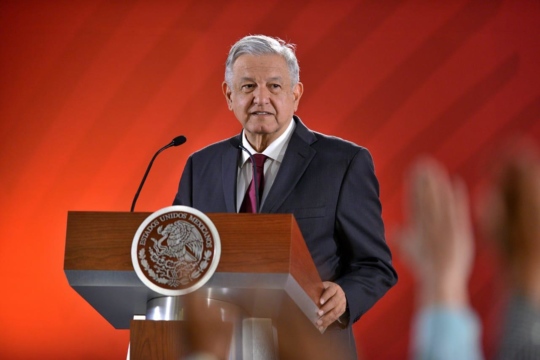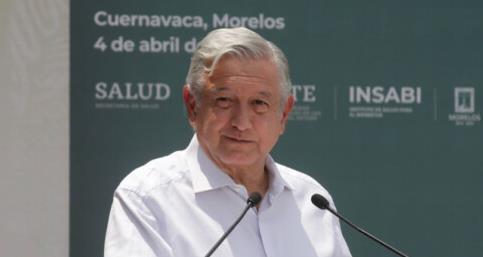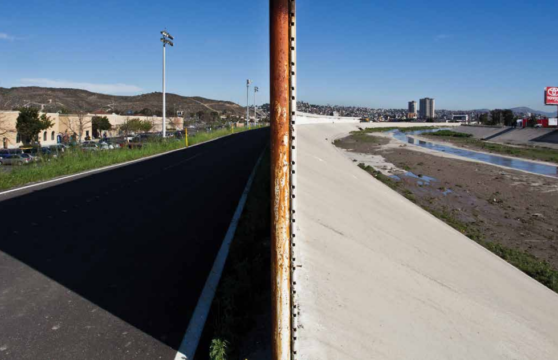
How Well Is Mexico’s President Handling Ties With Trump?
How does López Obrador’s posture toward his northern neighbor compare to that of past Mexican presidents?
How does López Obrador’s posture toward his northern neighbor compare to that of past Mexican presidents?
Leftist Andrés Manuel López Obrador swept to victory Sunday in Mexico. What changes are in store?
Mexicans go to the polls on Sunday, July 1, for the country’s presidential, legislative and local elections. What can we expect?
On May 11, the Inter-American Dialogue hosted an event titled “Anticipating the Mexican Elections”. This discussion, moderated by Michael Shifter, featured panelists Shannon O’Neil from the Council on Foreign Relations, Juan Pablo del Valle from Mexichem, and Enrique Bravo-Escobar from the National Endowment for Democracy.
This year’s “electoral supercycle” could ignite a race to succeed Washington and Caracas as the hemisphere’s big players.
Next year, critical elections in Latin America’s three most populous countries—Colombia, Mexico and Brazil—are likely to reveal a distemper stemming from citizen disgust with a mix of corruption scandals, mediocre economies, unremitting violence and a largely discredited political class. All three presidential contests are wide open and ripe for anti-establishment challengers.
Latin America faces many challenges in developing its energy resources and providing clean, affordable and reliable energy. With presidential elections in Brazil, Mexico and Colombia next year, there is considerable uncertainty about future energy policy, as potential candidates in these countries have presented widely varying energy and economic policy platforms.
During a visit to Pittsburgh, Michael Shifter spoke with KQV News Radio and the World Affairs Council of Pittsburgh for their weekly World Affairs Report. In a conversation with Angélica Ocampo, Shifter discussed regional progress in Latin America, US foreign policy, the crisis in Venezuela and the upcoming elections in Brazil and Mexico.
In spite of a steady economic recovery, low inflation and improving fiscal balances, Latin America is seeing weak private investment in energy and other sectors.
Lisa Viscidi, director of the Energy Program, gave a presentation to the Federal Energy Regulatory Commission on Mexican energy policy under AMLO and its implications for US-Mexico energy trade.
The Covid-19 pandemic has once more demonstrated the fragility of Latin American regional and subregional organizations, and the reasons for it: the weaknesses of domestic institutions, the lack of shared interests and values, and the dependence on foreign powers. It is not too late to turn the pandemic into an opportunity to acknowledge the existence of common interests, and the value of pursuing them collectively.
Lisa Viscidi, director of the Energy, Climate Change & Extractive Industries Program, spoke with Natural Gas Intelligence’s Adam Williams about recent regulatory changes to Mexico’s energy sector and how they are impacting the country’s natural gas market. They discuss obstacles that could affect the country’s energy sovereignty, investment opportunities, natural gas imports from the United States, and concerns surrounding political risk in the sector.
En esta entrevista con Aristegui Noticias, Michael Shifter habló con Daniel Zovatto, Director Regional de IDEA Internacional para América Latina y el Caribe, sobre el impacto de la pandemia en los Estados Unidos, América Latina en general y también casos específicos como Brasil, México, El Salvador, Nicaragua y Venezuela.
What do the new rules in Mexico’s power sector entail, and why have the sparked controversy among energy companies and local industry groups?
How are President Andrés Manuel López Obrador’s policies affecting Mexican companies and foreign investors’ appetite for putting money into the country’s businesses?
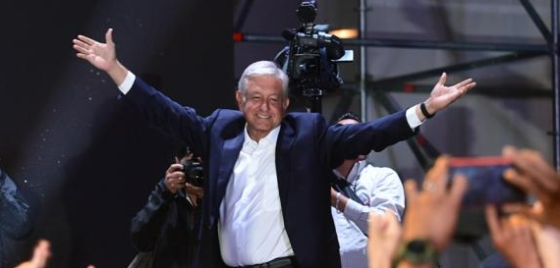
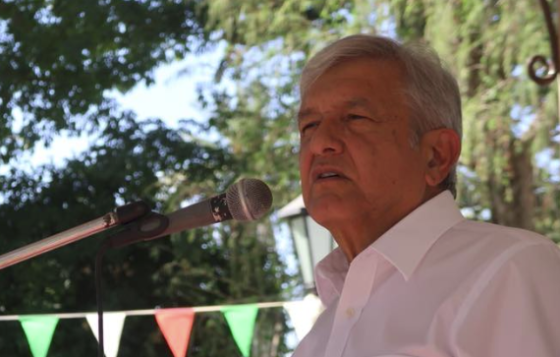
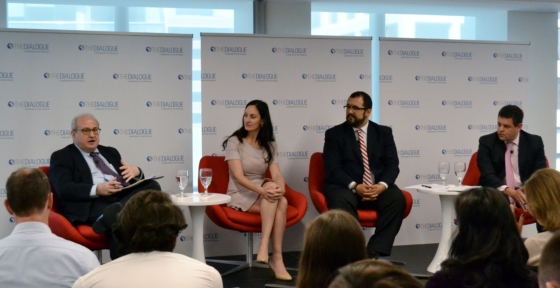 Video
Video
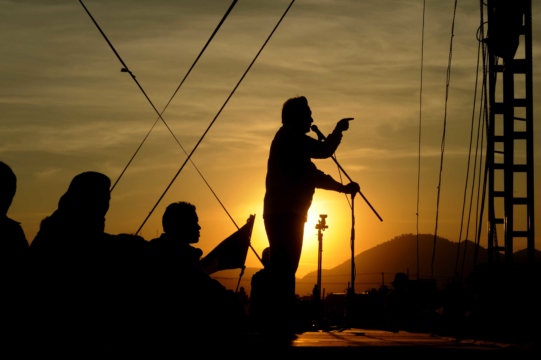

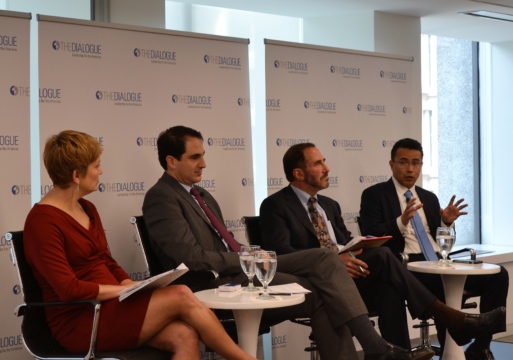

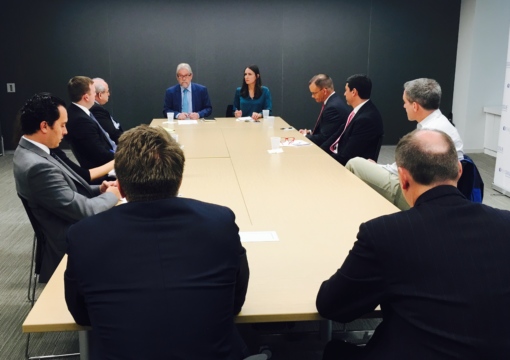
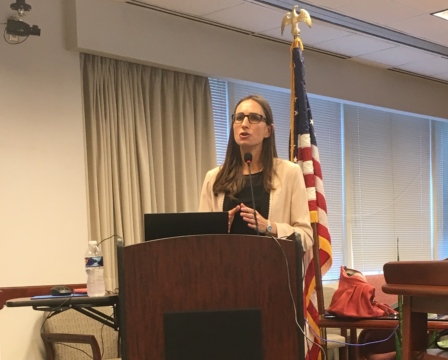
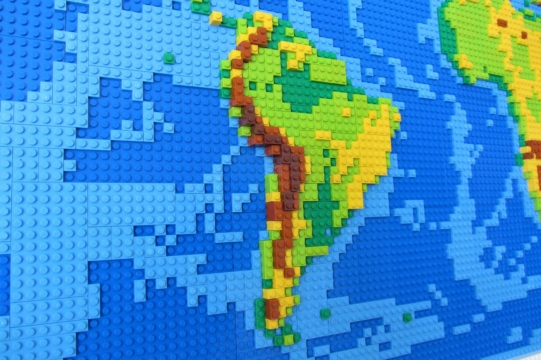
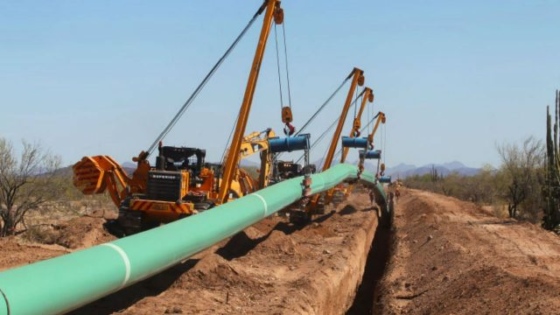
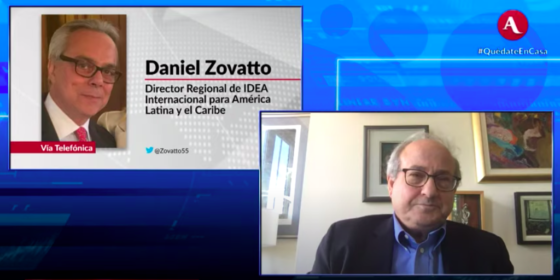 Video
Video
